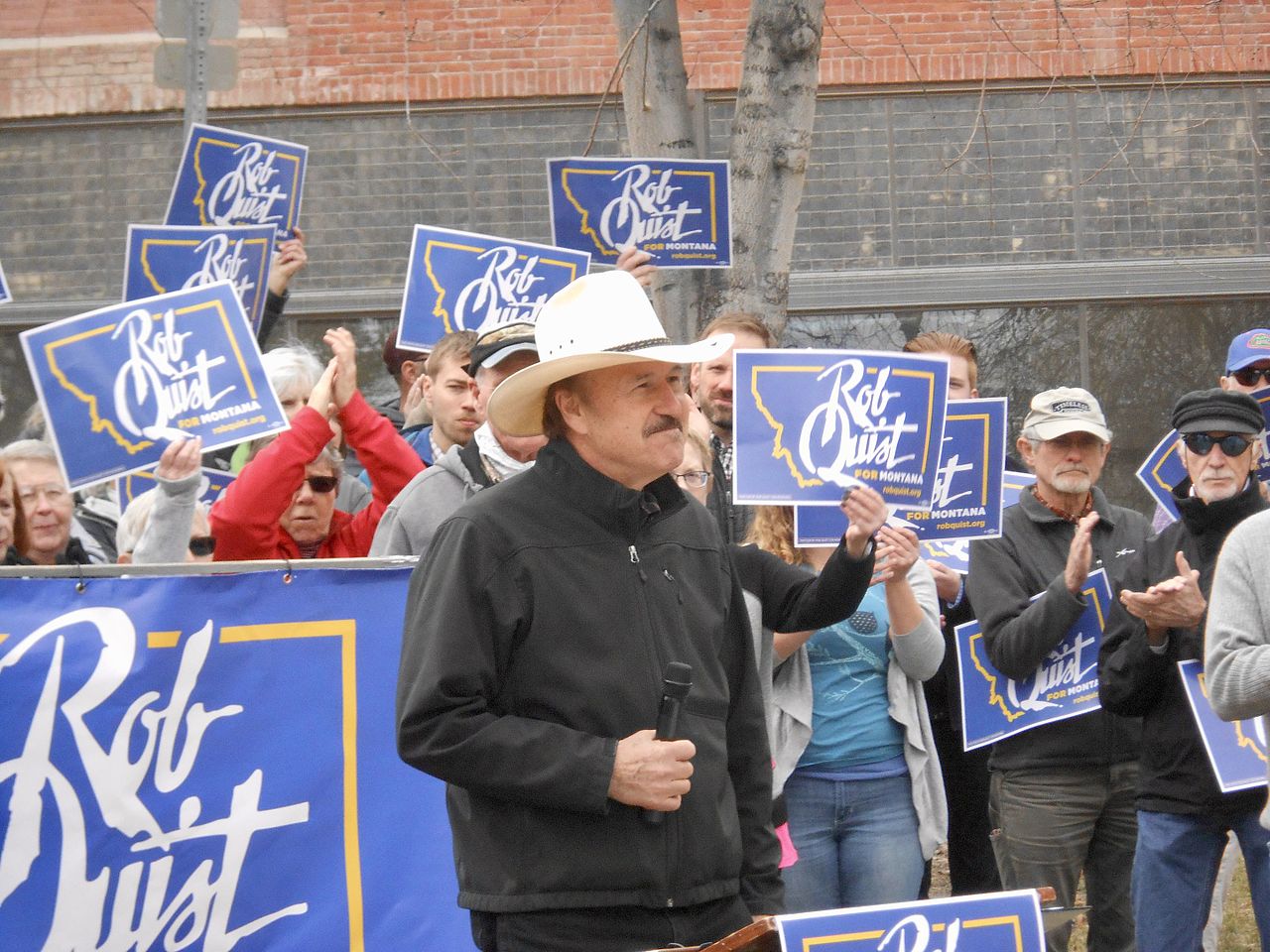By: Caleb Mills
Learning the hard way is not fun, but the lessons are all the more valuable for it. Particularly when it comes to politics, no one wants to lose and, yet, the losses are what instruct you as to what you did wrong, and how to do better the next time.
The May 25th, 2017, special congressional election in Montana provides such hard lessons. It reminds the interested observer that in American politics, voters are more moved by ideas than by ideologies, and that it is never wise to ignore the moderate center of the electorate.
The Republicans had a narrow victory in the election, but the Democrats are not the only party that needs to take heed of the outcome. Both major parties need to learn all they can and to do it while they still have time. The midterm elections are not far off now and the scene is characterized by some cold, hard facts.
It is said that Thomas Edison refused to regard his first thousand attempts at making a lightbulb as failures, looking at them instead as necessary steps to his eventual success. It is a laudable outlook, but hopefully it won’t take that many elections to gain a victory for either party. Even if such trial and error is undesirable in the House, Edison’s example reminds us that perseverance does have its benefits, one of which is often victory.
Indeed, perseverance is one term you could think of while considering the electoral history of Montana Republican, Greg Gianforte (although we should all hope that persevering in a course wasn’t on his mind while pummeling that Guardian reporter). Gianforte had also run for governor in 2016, only to be beaten by Democratic incumbent Steve Bullock in a reliably red state. The politician that doesn’t know when to quit is a creature that most Americans dislike, but, that said, if you run often enough you’ll probably eventually get elected for something.
Rob Quist, the Democratic nominee in this case, didn’t need perseverance; he needed scandal. Not his own, of course, but more of it from the White House and, in the final days of the campaign, from his opponent. Quist lost by only 4% in a deeply red state where President Trump won by over 20%. With only a year passed between the special election and Trump’s ride to victory, what exactly changed?
It is true that there are numerous things that help to explain Quist’s ability to bring out support in high numbers. Quist, who is a songwriter and something of a local legend in Montana, had a high public profile. But in a state where Republicans have won all but two presidential contests since 1952, a wide grin and a guitar just won’t cut it for a Democrat.
Another factor that could be mentioned is, of course, Gianforte’s violent behavior the night before the special election, when he body-slammed a reporter. This surely had an impact. But Quist was already nipping at Gianforte’s heels before the incident, and in so small an election, in so small a state, where Republicans are almost guaranteed victory, it takes more than a last minute slip up to crash your poll numbers. It takes being on the wrong side of the political battle.
Quist lost for the same reason he was close to victory – he was a Democrat. As a democrat, he was able to separate himself from an unpopular administration in Washington. It was independents, moderates, and undecideds that allowed him to nearly oust Gianforte, not Republicans deserters.
So here is a summary of the ordeal, with an eye to the lessons it teaches; lessons that both parties need to consider.
Quist, a Bernite/medicare-for-all Democrat was able to surge ahead and become a real challenger to a Republican in a state that has one of the most reliably red records in modern history. He did this through a combination of tying his opponent to Trump while openly pushing his own progressive agenda; not in terms of the wider scale of ideology, but in terms of what it meant to Montana. He thereby avoided a mistake so many progressives willing commit.
Don’t talk about your ideology, talk about your ideas. As Quist showed, even in Montana, if you can connect a progressive agenda to your constituency in a positive way, you strengthen your position. The inevitable attacks calling you an extremist become a lot less deadly. As far as voters are concerned, it’s rather hard to be mad at someone starting a movement of any kind if it appears to be in your best interest.
This strategy might not have been as successful as many of us would have liked, sure, but the race showed that it can close the gap. So let all those planning on taking on House or Senate elections in red states come midterms pay close attention to it.
We also saw another example of how the President is not a very good ally to many in these state elections. It is true Gianforte didn’t get hurt too much among Republicans by Quist’s attack ads, but the independents and moderates listened. They weren’t big fans of Trump to begin with, and now as the Russian investigation goes on and scandal after scandal comes to light, it’s gone beyond simple distaste.
The independent revolt, a development of watershed potential, one that could drown the GOP in a sea of distrusting moderates, made some electoral waves during the race in Montana. Perhaps this also foreshadows an even more detrimental flood come House elections.
But news isn’t all bad for Republicans. Montana also showed us that Conservatives, in keeping with the Western and Southern wing of the party’s love for country music, will Stand By (Their) Man. Tammy Wynette jokes aside, it is entirely true that conservative voters are devoted in this manner to their candidates, and Montana was not the only election that proved that.
During the Presidential election last year, Donald Trump garnered high turnout among Republican voters and this trend has been seen with their candidates in most races so far, at almost every level. The strong wave of criticism directed at the President, and by extension the Republican party, has made many of their loyal supporters defensive and irritated by anyone claiming to know better than they do. Few cracks have emerged in the Republican base.
But there is yet another strategy that Democrats latched onto and that bore fruit in the Montana case. That consisted in their relentless campaigning against the Republican healthcare plan that passed through the House with support from Republicans representatives. Once again, by tying the topic to the well-being of people in the state rather than ideology, Quist was able to rally support behind him.
Republicans and Democrats weren’t the only ones with things to think about following the special election. Libertarian candidate Mark Wicks, after a well performed town-hall that garnered wide media attention, also climbed in the polls, with some surveys putting him higher than 10%. The end result was much lower than that, and Wicks ended the night with 5.7%, but it was still a very good number for a third-party contender.
Nonetheless, the special election confirmed the not so surprising fact that even with dissatisfaction for both Republicans and Democrats at historic levels, third party candidacies are still not gaining unusual support amongst the electorate.
The lessons we can learn from Montana concern strategy, ideas over ideology, but they also concern the character of the voters. In times of excessive politicization and heightened unrest, it seems that people stick to their guns, right or wrong. It also seems that, unlike past elections, the midterms will come down to who can appeal the most to moderates and who can drum up turnout from their own party.
Sadly, elections seem no longer to be about convincing voters with arguments, and more about grandstanding before them. To that extent, both parties have a shot at victory. Most importantly, though, Montana revealed that victory might just be possible for anyone, if they play their cards right.
Image: Rob Quist at a campaign stop in Helena, Montana. Via Wikipedia










Leave A Comment